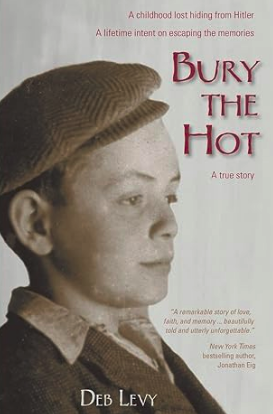Author Deb Levy spoke about her book, a memoir “Bury the Hot,” written about Holocaust survivor Sal Wainberg for Montclair High School’s Holocaust & Genocide class, on January 31.
Levy explained Sal Wainberg was a family-friend, and had kept quiet about his past most of his life. She said the Holocaust is all about the horrors, but she wanted to share the love, culture, and hardships of it too. Levy described how the book incorporated Yiddish as a large character, keeping the culture and truth of the book.
In 2009, Levy received a call from Sal Wainberg – she thought it was odd, as he didn’t frequently call. She answered the call and before even a “hello” was said, Wainberg asked;
“Hi, do you know my story?”
“No?”
“Did you know I was a survivor?”
The memoir jumps from past to present, representing a loss of childhood, suppressing trauma, and the aspect of letting go. The major themes discuss the traumatized life, and how Wainberg tried to escape it. Levy described the opportunity to write Wainberg’s story as “a gift.”
Levy and Wainberg secretly called weekly for roughly two to three hours, and Levy would record it. The calls would be long, and it would take her hours to transcribe it.
Wainberg was three and a half years old when he knew World War 2 was happening. He had never seen a war plane before.
Sal Wainberg was a reserved man. His wife, Sandy, didn’t even know about his childhood until eight years into their marriage, on an airplane. During a visit to Poland in the 1970s, after Russia opened up their borders, Wainberg explained what happened to his wife – who was shocked. Sandy thought they were just doing a tour, but Wainberg wanted to visit the family who saved his life all those years ago. Every year he would secretly send them money as a thank you.
“What would be worse: finding out he was cheating on you, or that?” Deb asked Sandy.
“He is a survivor, but I am too. I am a survivor of this marriage.” Sandy said.
Deb Levy described Sal Wainberg a “generous, philanthropic guy,” who volunteered frequently. He was also firm and didn’t express much. When he had grandkids, he became more fun. Wainberg died of brain cancer in 2012 before the book was officially published. His wife suggested minimal changes and gave Levy the final authorization for publishing.







